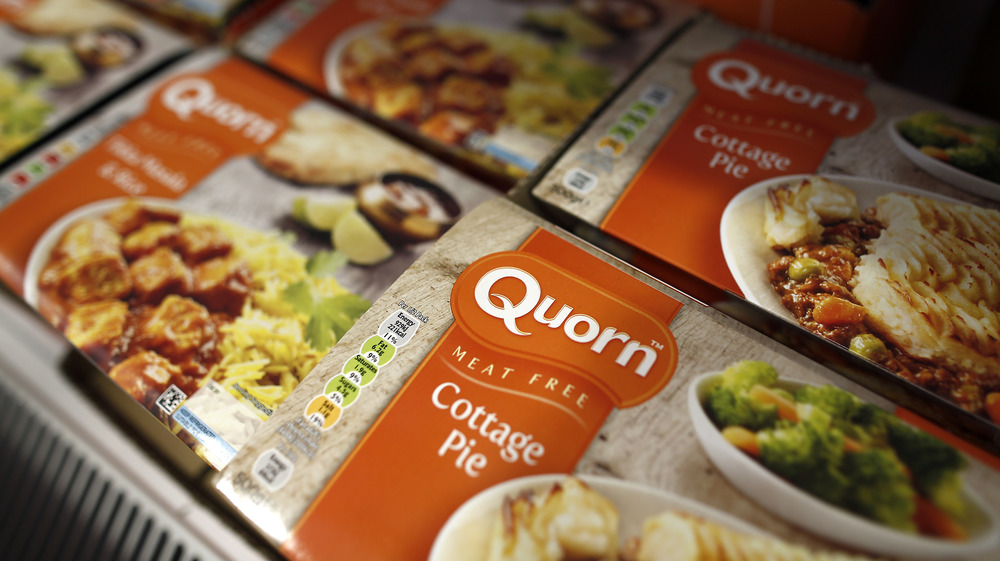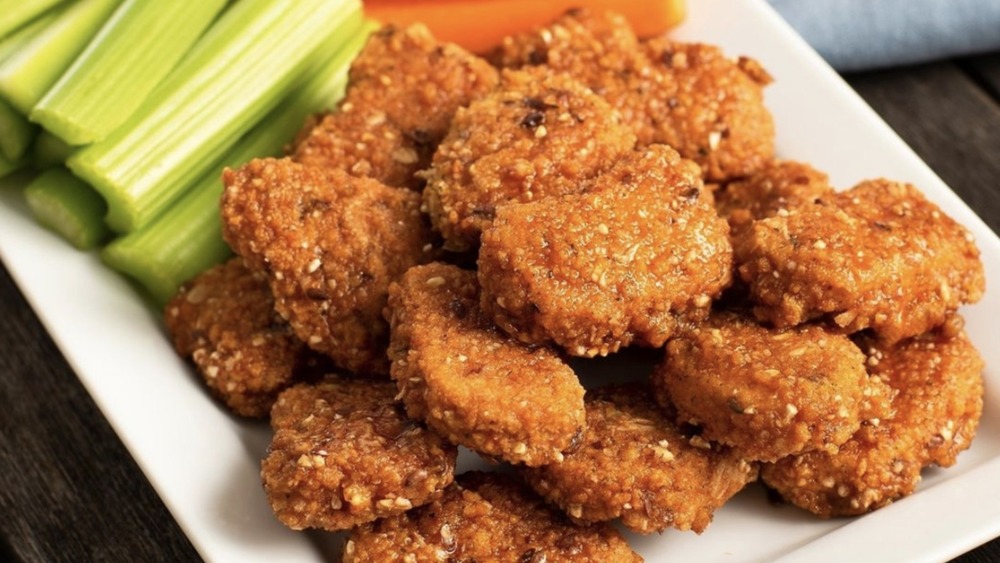The Surprising Ingredient Quorn Uses In Its Meat Substitutes
Meatless meat is having quite the moment right now in American grocery stores and restaurants. Beyond Meat, one of the most popular plant-based brands, reported its earnings tripled to $90 million in the third quarter of 2020 (via Reuters), while plenty of fast food chains, from McDonald's to Chipotle, have added meatless options to their menus. Even IKEA is getting in on the trend, promising that up to 80 percent of its food offerings will be completely plant-based by 2025, Vox reports.
Another big name in the meatless world is Quorn, which has been around since the 1960s. With everything from fishless sticks to plant-based nuggets, ground "beef," and burgers, Quorn has millions of fans around the world. But you might be surprised to learn exactly what's hiding inside those meatless meals you're digging into — i.e., what's making them taste just like chicken in some cases. Here's the ingredient you probably didn't realize you were eating.
Quorn's meatless meat contains fungus
For as delicious as Quorn's meatless products might be, you may be shocked — and a little disgusted — to learn what said products are made of. On its website, Quorn explains that its "secret" ingredient is something known as mycoprotein, which is actually a fungus that comes from mold in soil. Quorn ferments the harvested Fusarium venenatum and turns it from a carbohydrate into the mycoprotein that it uses in all of its plant-based products.
Before you freak out, mycoprotein is actually good for you (unless you have a mold allergy, that is). Just a 1/2 cup serving of the fungus has 11 grams of protein and 6 grams of fiber. It's also low in saturated fat and cholesterol and is a more sustainable alternative to meat, as it requires less land to produce. Live Kindly notes that Quorn is currently the only company that uses mycoprotein in its food.

